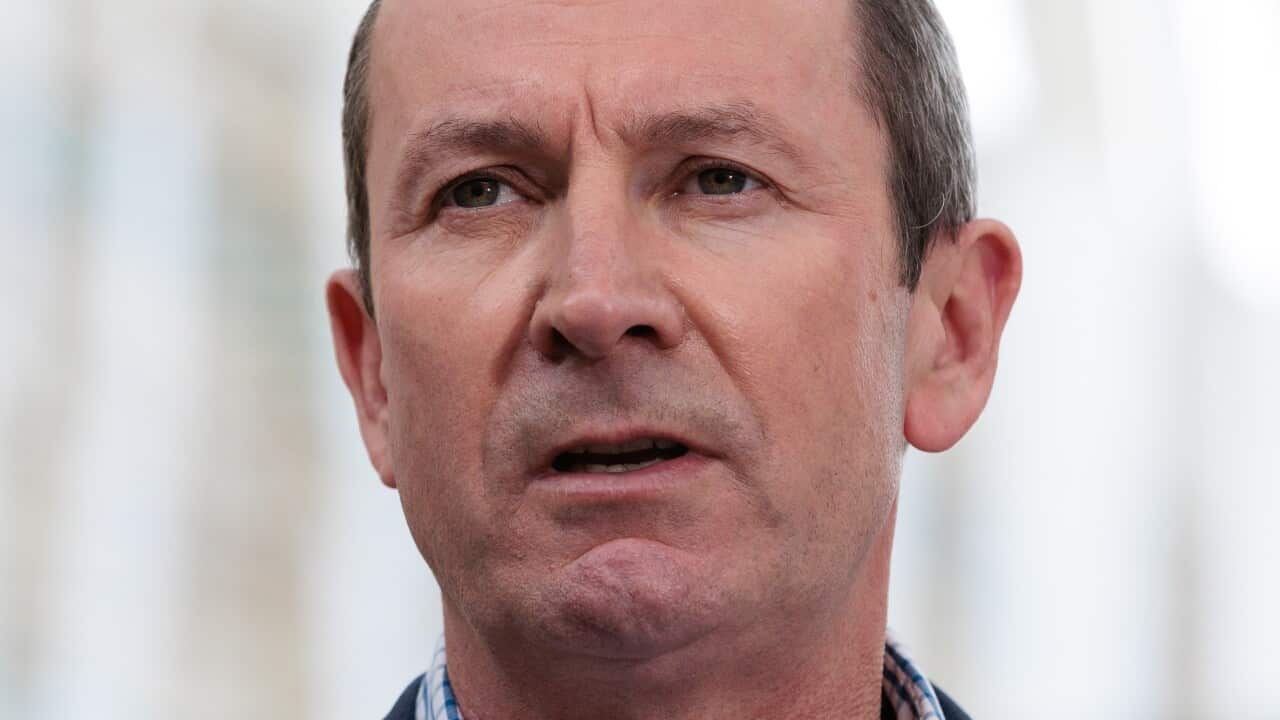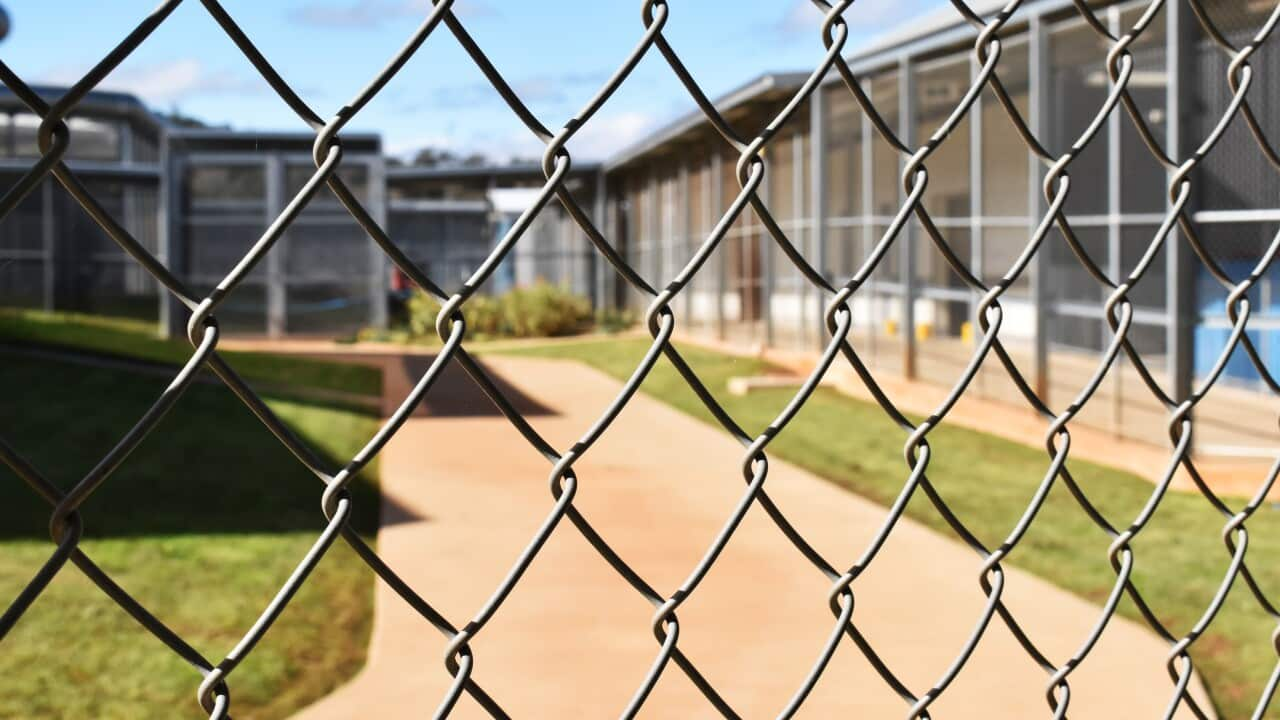Key Points
- The McGowan government's transfer of some juvenile detainees to an adult prison continues to prompt intense scrutiny.
- Western Australian premier Mark McGowan says his government is doing the best it can in a 'difficult situation'.
- Some described the youth justice system in WA as being “in crisis”.
Western Australian premier Mark McGowan is facing sustained pressure over his government’s handling of the Banksia Hill juvenile detention centre as its decision to move some juveniles from the facility to an adult prison continues to prompt intense scrutiny.
Facing a series of high-profile criticisms this week, he has maintained his government is doing the “best” it can in a “difficult situation” after some detainees caused extensive damage to cells at Banksia Hill and were relocated.
“If they are in detention, if they then destroy their cells so they are uninhabitable and disrupt everyone else and attack the staff we have to manage that,” Mr McGowan told reporters.
“Now I know some people think somehow that’s easy - it’s not. The idea that there are somehow easy solutions here is wrong.”
The idea that there are somehow easy solutions here is wrongWA Premier Mark McGowan
On 20 June, the damage caused by juvenile detainees resulted in almost half of its 250 cells becoming unusable.
, to what's known as Unit 18 at the Casuarina prison, which typically holds only adults.
WA's leading children's health research centre, the Telethon Kids Institute, on Thursday became the latest identified as a strong critic after its concerns were revealed in a letter leaked to the media.
The letter, verified by SBS News, condemned the transfer of the cohort of juveniles to the Casuarina prison as “extreme”.
“We do not underestimate the challenges these children present, but we struggle to accept that there was no other option,” it said.
It was co-signed by institute director Jonathan Carapetis and the institute's Aboriginal Health director Glenn Pearson and sent in the weeks following the transfer.
The letter said the institute was “extremely distressed and disappointed” by the decision, which the pair warned would only “increase the risk that [the teenagers] would return to that same prison when they become adults.”
Mr McGowan has said the decision to separate some of the detainees was to ensure they could pursue their rehabilitation without disruption and the safety of staff.
“That’s why we’ve set aside a specific unit - not mixing with any adult prisoners or anyone of that nature," he said.
However, last week a senior Perth judge accused the WA government of “flouting the law" and "thumbing its nose at the court" by detaining juveniles in the adult prison.
Children's Court President Hylton Quail made the comments when handing down his reasons for granting bail to a 17-year-old detained at Unit 18 inside Casuarina adult prison.
Youth justice system in 'crisis'
The strident criticisms of the transfer come alongside an incendiary condemnation levelled this week by former Children’s Court President Denis Reynolds and Neil Morgan, Western Australia's former Inspector of Custodial Services.
The pair co-authored a stern rebuke of the McGowan government's handling of detainees in juvenile detention in an opinion piece published in the West Australian on Tuesday.
In the story, they described the youth justice system in WA as being “in crisis”.
“Banksia Hill and Casuarina are places of constant human rights abuses of children with disability and pre-existing trauma,” they said.
“That has serious consequences for us all.”
The pair blamed a “prolonged lack of political and Departmental leadership with disregard for the law and loss of a moral compass” for the conditions faced by detainees.
On the decision to transfer some to an adult prison they said: "the truth is that their behaviour was the inevitable consequence of their cruel, inhumane and unlawful treatment."
The Aboriginal Legal Services of WA has also acted on behalf of more than 20 children who have laid individual complaints about lockdowns, lack of mental health services, education and recreation services at Banksia Hill over the last six months.
A recent civil case brought by the group resulted in aduring lockdown as 'unlawful'.
Banksia Hill operating 'very effectively', premier says
In defending his government’s response on Thursday, Mr McGowan said it had committed $25 million towards improving the Banksia Hill detention centre.
“We are spending a lot of money on trying to make sure that it’s fit for purpose,” he said.
The response would include the establishment of a $7.5 million crisis care unit.
The works would also include improvements to the centre's Intensive Supervision Unit, with new recreation areas and enhanced observation cells.
Greater safety and security would also be provided through CCTV upgrades and anti-climb roof and fencing, the government has said.
Mr McGowan on Thursday described the facility as operating “very effectively” for 85 detainees who remain at the facility.
“It’s operating very well - they get psychological support, educational support, recreation, visits,” he said.
He also described youth detention as a "last resort" saying it was only deemed appropriate for those who had reoffended multiple times.
"We have to manage a difficult situation and a group of people who have multiple issues in the best way that we can," he said.
'Punitive, inhumane and degrading'
But in their opinion piece Mr Reynolds and Mr Morgan paint a fair bleaker picture of the conditions faced by detainees.
“Reference to Inspectors’ reports … show that Banksia Hill has cycled with depressing regularity from crisis to partial recovery and back to crisis,” they wrote.
“The themes are invariably the same: excessive lockdowns, punitive, inhumane and degrading regimes, staff shortages and a decrease in services.”
Concerns over the operation of youth detention centres in Australia are not confined to Western Australia.
In September, National Children's Commissioner Anne Hollonds stated that urgent reform was required to address Australia’s youth detention crisis, which she said compromises children’s safety and doesn’t adequately support families.
She said issues currently being exposed at youth detention facilities in WA, Tasmania and the Northern Territory showed a failure to prioritise the wellbeing of youth detainees.
“The ongoing crisis in youth justice is a national systemic failure to protect children and young people,” she said.
The UN's Subcommittee on Prevention of Torture also recently undertook a 12-day trip to assess the conditions of Australia's prison and detention centres.













